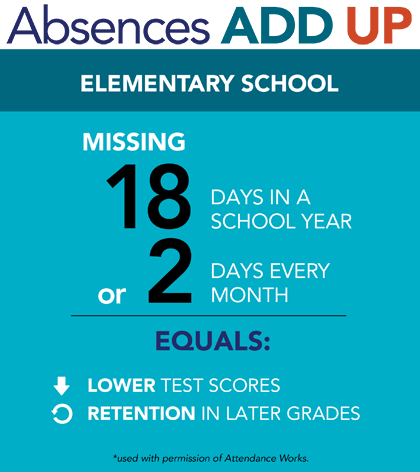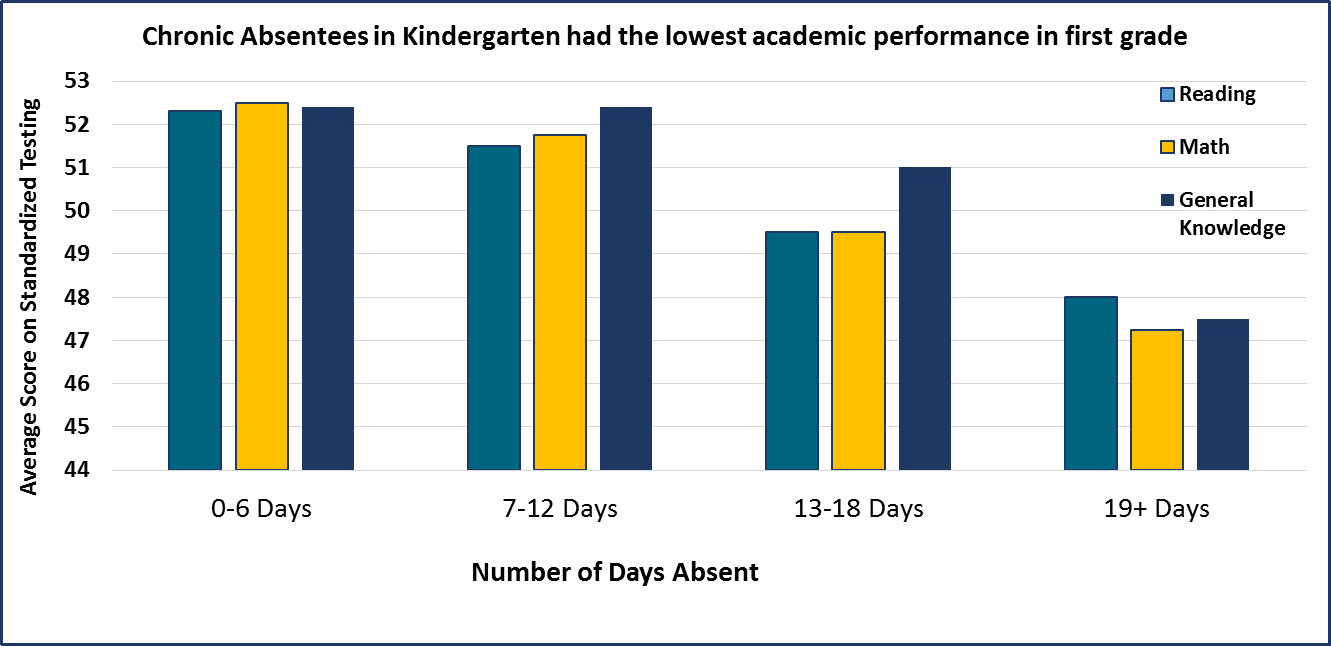
Encouraging School Attendance in Elementary School
Regular attendance in elementary school is a strong predictor of grade-level performance.

- Starting in Kindergarten, missing 10 percent (or about 18 days) can make it harder to learn to read. That is just a day or two days every few weeks.
- By 6th grade, absenteeism is one of the three signs that a student may drop out of high school.
- Students who are frequently absent in Kindergarten do less well in first grade.
- Absences add up in elementary school. Research shows that missing 18 days in a school year or 2 days every month can result in lower test scores and possible retention in later grades.
Chronic Absentees in Kindergarten had the lowest academic performance in first grade
Chronic absenteeism in kindergarten is associated with lower achievement in reading, math and general knowledge at the end of first grade. On average, test scores for children missing 18 or more days during the school year were 5% lower than the test scores of children who missed 6 or fewer days during the school year.

How to Encourage School Attendance in Elementary School
Parents have a huge influence on students when it comes to attendance. Attending school regularly helps students feel better about school—and themselves. Start building this habit in preschool so they learn right away that going to school on time, every day is important. Good attendance will help students do well in high school, college, and at work.
Before School Starts:
-
Establish regular bed time and morning routines to help your child develop a habit of on-time attendance.
-
Find out what day school starts and make sure your child has the required shots.
-
Introduce your child to her teachers and classmates before school starts to help him transition by attending your school’s open house.
-
If your child seems anxious about going to school, talk to teachers, school counselors, or other parents for advice on how to make her feel comfortable and excited about learning.
-
Develop back-up plans for getting to school if something comes up. Call on a family member, a neighbor, or another parent.
-
Establish childcare arrangements.
During the school year:
-
Maintain regular bed time and morning routines to help your child develop a habit of on-time attendance.
-
Talk to your child about why going to school everyday is important unless they are sick.
-
If your child seems reluctant to go to school, find out why and talk to teachers, school counselors, or other parents for advice on how to make him feel comfortable and excited about learning. Keep in mind complaints of a stomach ache or headache can be a sign of anxiety and not a reason to stay home.
-
When possible, avoid medical appointments and extended trips when school is in session.
-
Reach out to your child’s teacher or school counselor if you are experiencing tough times such as unstable housing, transportation or health problems.





